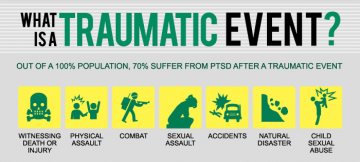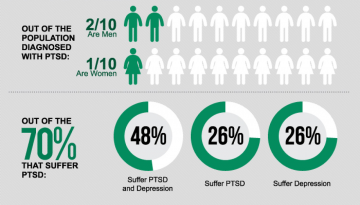One of the most popular games in the 80’s, and later for Gameboy in the 90’s, could be the solution to post-traumatic stress disorder (PTSD).
Tetris, the colourful tile-stacking game, blocks flashbacks of traumatic events, even if the memory is cemented in your brain.
 After a traumatizing experience, there’s a six-hour window where the memories are solidified in the mind, strengthened further if you sleep on it, according to a study. Traumatic experiences can produce vivid memories, which are core to PTSD.
After a traumatizing experience, there’s a six-hour window where the memories are solidified in the mind, strengthened further if you sleep on it, according to a study. Traumatic experiences can produce vivid memories, which are core to PTSD.
While there are treatments for PTSD after it’s diagnosed, there’s nothing that can help its prevention from developing in the days or weeks following a traumatic experience.
Emily Holmes, Program Leader at the Medical Research Council Cognition and Brain Sciences Unit in Cambridge, UK, believes Tetris could be the answer.
Her first study was in 2009, where her team found playing the game within four hours of a traumatic event reduced the flashbacks. Her team didn’t think it was logical to have someone play a video game that soon after being traumatized, so they’ve furthered tests to after the memory had been slept on and solidified.
 The team had a test run of 56 people watching videos of stressful images. Having the participants return a day later, they were shown stills of the video, reactivating the previous memories. Then, half the participants played Tetris for 12 minutes, while the rest sat quietly for that time.
The team had a test run of 56 people watching videos of stressful images. Having the participants return a day later, they were shown stills of the video, reactivating the previous memories. Then, half the participants played Tetris for 12 minutes, while the rest sat quietly for that time.
The group that played Tetris had 51% fewer intrusive memories of the video than the group that hadn’t.
“We showed that intrusive memories were virtually abolished by playing the computer game Tetris following a memory reactivation task 24 hours after initial exposure to experimental trauma,” they wrote in their research paper. “Furthermore, both memory reactivation and playing Tetris were required to reduce subsequent intrusions.
Holmes believes games that require processing visual information quickly creates a “cognitive blockade”, reducing the power of memories induced from trauma. While one would still remember the event in detail, the vivid images would be tougher to trigger. She says other games, like Candy Crush, could work too. “We started with Tetris because there is previous research showing that it uses up visual attention,” she says.
Holmes’ team has already started deploying Tetris on people in hospitals who have been in car accidents.
While it’s still unknown how long the Tetris effect will last, even brief relief is worth testing for, Holmes believes.
“Think of it like hand washing. Hand washing is not a fancy intervention, but it can reduce all sorts of illness. This is similar – if the experimental result translates, it could be a cheap preventative measure informed by science.”
As a final thought, Holmes wonders if the affects of gaming, which she’s only skimming the surface of, is impacting us more than we think – in the memories of our everyday lives. The end of her paper coyly teases this theory, perhaps a study for the future.
Could excessive dosages of computer gaming affect our day-to-day memories in every day life?
Photo credit: Radachynskyi Serhii/Shutterstock












